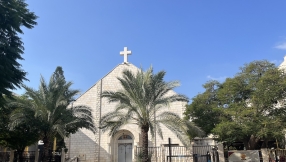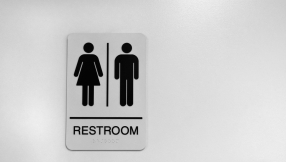
Religious studies is at risk of becoming an "endangered" subject, academics have warned, after research found that it has disappeared off the curriculum in hundreds of non-faith schools.
Between 2017 and 2018, the total number of students taking GCSE religious studies fell from 253,712 to 229,189, according to figures in a new report by Dr David Lundie, of Liverpool Hope University, and UCL Institute of Education Research Fellow Dr Mi Young Ahn.
At the same time, 701 schools stopped offering GCSE religious studies altogether, with a noticeable distinction between secular and faith schools.
"Religious character is becoming increasingly significant, with 95% of students in Roman Catholic schools being entered for GCSE RS, compared with 68% in Church of England schools and only 30% in schools without a religious character," the report authors said.
"Much of the drop in GCSE entry in 2018 is in schools without a religious character, suggesting that the subject may soon become endangered as a mainstream option outside the faith sector."
The researchers also identified a social difference between the schools that offer religious studies and those that do not.
"Students attending schools with higher levels of free school meal entitlement (an approximate measure of students in poverty) are less likely to have the opportunity to take GCSE religious studies," they said.
"This may suggest socio-economic barriers to accessing RS."
They added, however, that this could not be entirely explained by the demographics of schools with a religious character.
"Even among schools without a religious character, there is evidence suggesting schools that offer GCSE RS have fewer disadvantaged pupils, on average, than schools that do not offer the subject," they said.
"While barriers exist to students accessing GCSE RS in some schools experiencing social disadvantage, where disadvantaged students do take GCSE RS, they have higher attainment compared to comparable EBacc subjects."
The researchers speculated that schools may be discontinuing GCSE religious studies because of the "perceived difficulty or breadth of content" in the new GCSE syllabus or out of a concern to give more focus to Ebaccs or the rest of the curriculum.
They asserted, however, that those schools which did discontinue the subject did not experience higher levels of attainment in the remaining subjects.
"There is therefore no evidence that dropping GCSE RS improves a school's performance in EBacc or other whole-curriculum progress and attainment measures," the study reads.
"Nonetheless, the continued pattern of decline is a cause for concern.
"More work is needed on the part of school leaders, examination boards, the RE community, government and the inspectorate to ensure that high quality Religious Studies at Key Stage 4 remains available to all students, regardless of social and economic disadvantage or school religious character."













